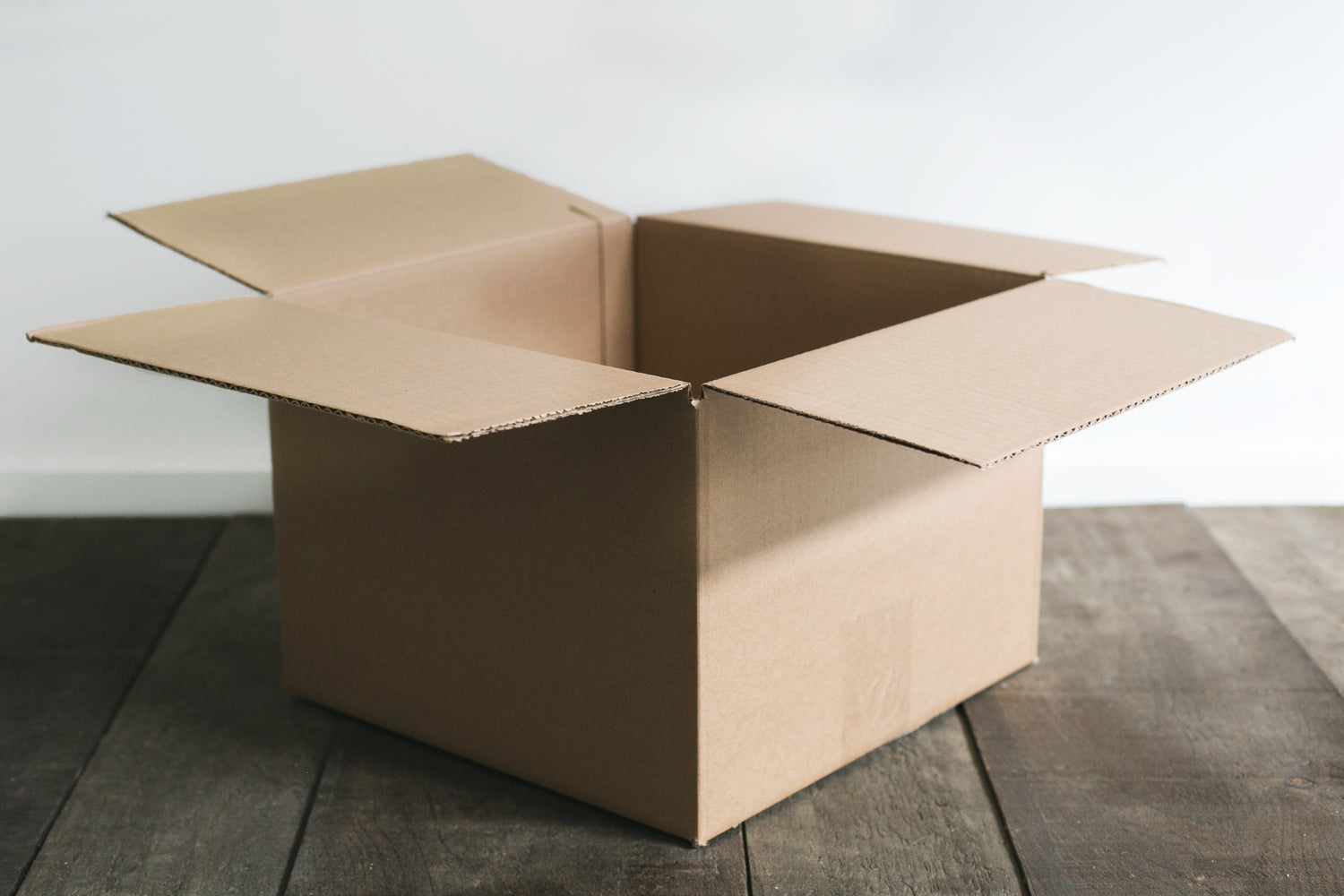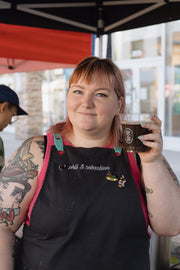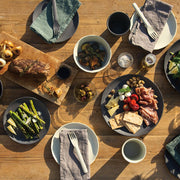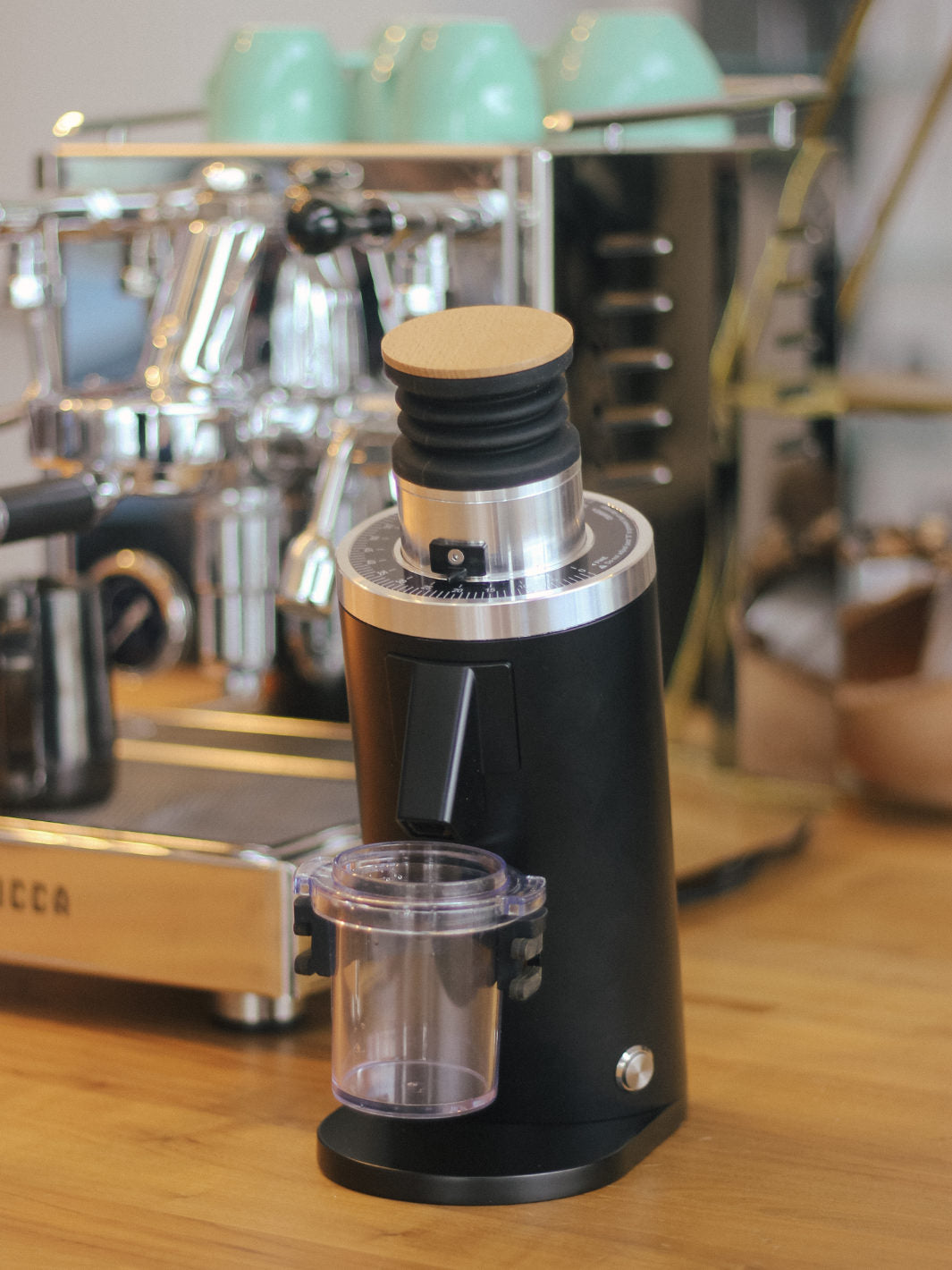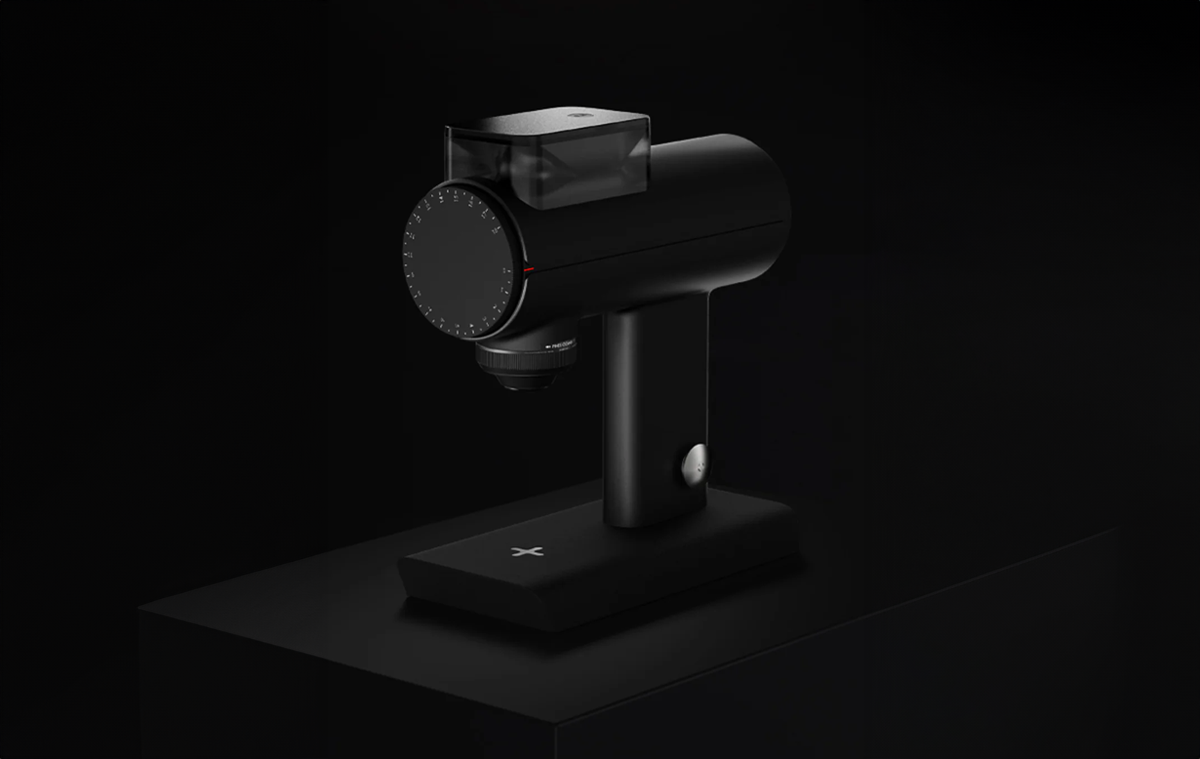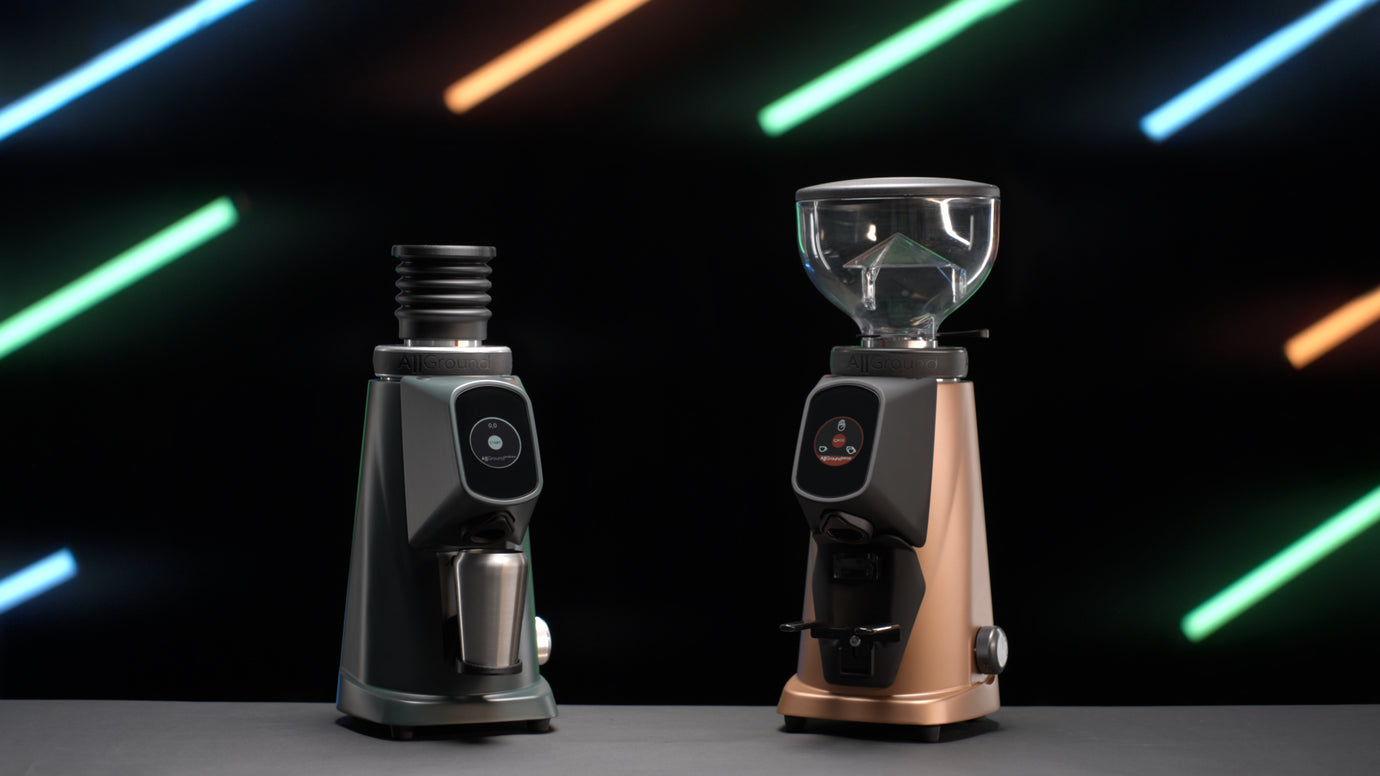How GetchuSomeGear Makes Coffee Supplies More Accessible
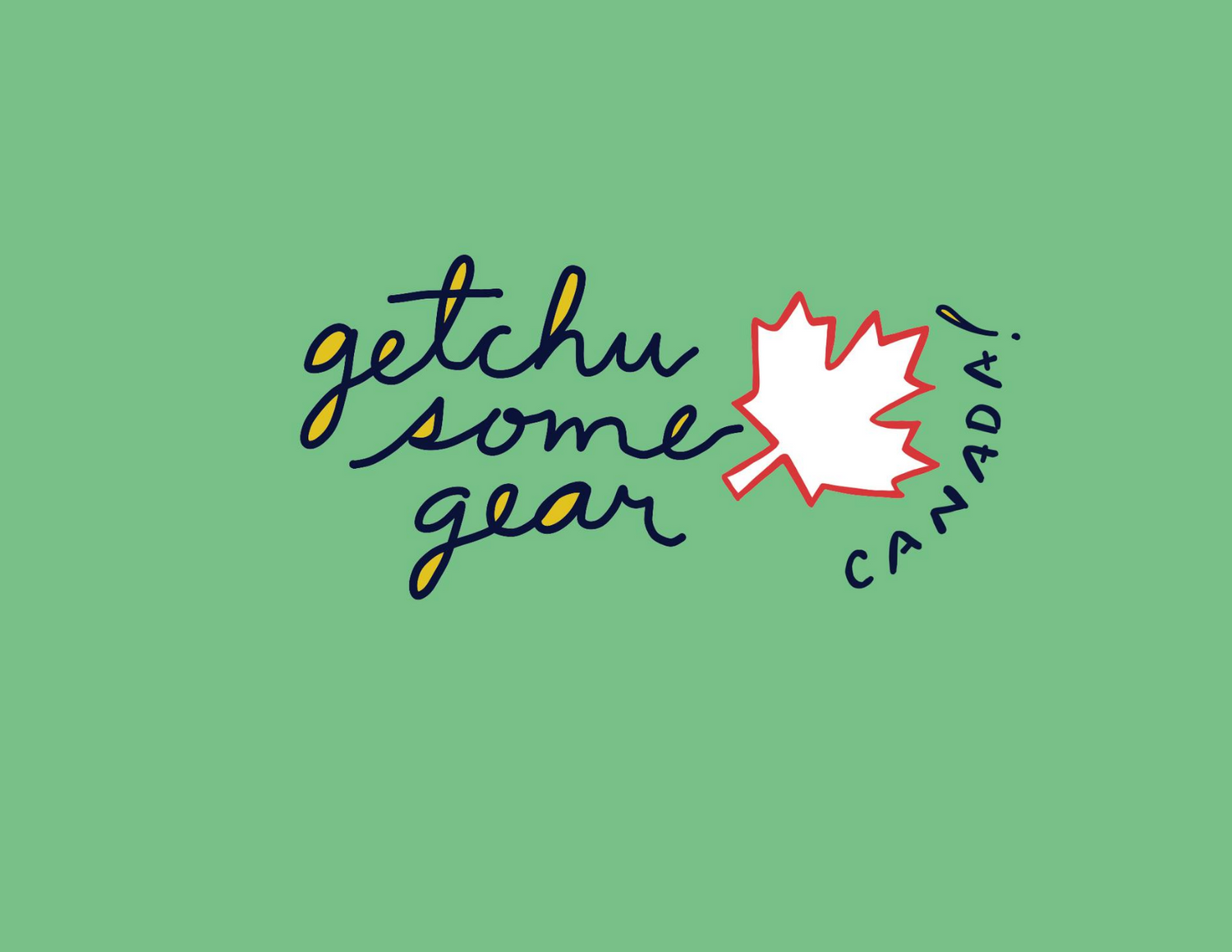

I wanted to take some time to talk about Getchusomegear! Getchusomegear is an organization that helps to get coffee gear into the hands of marginalized coffee folks around North America. Created by Chris McAuley, a coffee professional from North Carolina, Getchusomegear was founded in 2019 when Chris asked some people to donate coffee gear to a fellow coworker so they could brew coffee at home. In more recent years, they have expanded into Canada, and I wanted to take some time to talk to Dianne Eclar who heads up the Canadian chapter of Getchusomegear and also happens to be one of my lovely colleagues!
Dianne, thank you so much for sitting down with me to talk about Getchusomegear! I’d love it if you shared a bit about yourself, how long you’ve been working with Getchusomegear and how you got involved?
I wanted to work for Eight Ounce for a long time and when I finally had that opportunity I presented to them to be their Community Strategist. I recognized that they were very active in the community, and very supportive of the coffee community, and I basically wanted to turn that into my job. Since they were already doing such a good job with it, I wanted to work on more initiatives and more events that helped the community in and outside the coffee industry. So when we heard about Getchusomegear, which was in 2020, some of us thought, “what if we had a Canadian chapter?” And I thought that would be so amazing, so I reached out to Chris [McAuley] who was so excited by the idea of it. It was so easy to talk to him, and get this Canadian chapter up and running. He was so helpful in answering all of my questions about how to facilitate the best way and how to reach the most people. Everything I do I try to model after what Chris has already started. The biggest difference is that we’re one of the largest distributors of coffee gear in Canada, so it’s that much easier for us to actually ship these products across the country.
It really seems like a very good fit and it’s great to have someone who’s so passionate about the project in general be able to facilitate that!
Yeah! I love it!
What about the Getchusomegear mission resonates with you personally, and why?
We have to acknowledge that coffee gear isn’t always affordable. In fact, most of the time it isn’t affordable, especially for baristas who are making minimum wage, or a living wage–hopefully. It’s much harder for them to access those tools that they would actually need to make coffee at home. I was once a barista who also went through that same struggle of, “hey, I want to make pour-overs at home but a gooseneck kettle that’s electric is hundreds of dollars.” I wanted an Acaia scale, but that was super expensive so I settled for whatever affordable scale I could get which would also do the trick. But it’s nice to have nice things too, especially when you’re already using those products at work. It would be nice to use them at home and continue that training, and have the efficiency and durability, and not to have to buy something cheap that you eventually have to replace.
Along that note as well, I think we have both experienced this as baristas, it’s something we’re really passionate about and saw as a career and there are so many baristas out there who want to be in this industry as their career and so you want the nice, you want the good quality things because this is your career and you’re taking it seriously. You want the $300 scale, you don’t want the $20 kitchen scale from the grocery store, you want to take it seriously and you want people to take you seriously and I think that plays into it as well.
Totally! And with a scale, at first I was like, “okay, I don’t need a scale that will measure to the tenth of a gram,” but you do when you’re refining your recipes and monitoring all of that. The more space you get the more definition you need with the tools you have. Ultimately it was about accessibility, it was about trying to create that equity that is missing from the industry. If it’s not possible for marginalized baristas to get it themselves then we have to find a way to make it happen for them. People with the means, people who have the power to do it, should be able to make it happen for others who don’t.
I know in the US, they’ve sent over 600 boxes to date, how many boxes have we sent within Canada?
It’s not as many as 600, but we’re working on that! We have sent 97 gear boxes to date. To qualify for the program, you have to be a barista or hourly coffee worker from a marginalized community. So what does that mean? I don’t like using a catch-all term, but if you’re Black, Indigenous, or a racialized person, if you identify as queer, or non-binary, or with any community that has been historically and systemically excluded, this program is for you. The weird thing that I’ve come across is that when I talk about this program to the baristas that it’s intended for, many of them will say, “oh, you know I’d love to apply but I feel like there are other people out there who are more in need than I am.” What happens is the people it’s intended for end up not applying. So if anything at all, just apply! If you identify with any of the things I said, apply for the program! *It was here that Dianne started flailing her arms, emphasizing for people to APPLY to the program*
97 gear boxes so far is amazing, and hopefully by putting this interview out there it will encourage more to apply! So, I know in part it’s based on what has been donated, but what can someone expect to see in their box?
That’s a great question! It would typically be as much as we can help with what the applicant is requesting. When applicants fill out the form, they’re asked to choose three types of coffee gear and there’s an itemized list. It could be a pour-over dripper, a gooseneck kettle, a scale, coffee beans, educational resources. Most of the time what people are needing or asking for is a gooseneck kettle, a scale, or a dripper. It’s usually those things that are in a gearbox. I do want to take this opportunity to thank James Hoffman because he donated 100 copies of his books to the program, so now with this round of gear boxes, everyone will get one of his books, either World Atlas of Coffee or How to Make the Best Coffee at Home. They’re great books!

I have personally never seen the application, so I didn’t realize that there were those questions and that it was tailored to each person, which is so awesome!
Yeah, and I think that’s a really important thing too when working on community initiatives is that you don’t make assumptions about what people need. You don’t tell them, “here, you need this, so I’m going to give it to you” but you ask how you can help. In this case we ask what people need and we just listen to them.
Oh for sure, that is so incredibly important, and it’s so great that’s how Getchusomegear approaches it. Is there just Getchusomegear US and the Canadian chapter? Are there plans to expand into different parts of the world?
Well that would be a dream come true if we can make this worldwide! I know that Chris would love to see this program take off internationally.
I know it’s so dependent on the folks involved and resources, but where do you see Getchusome gear headed? What are some of the main obstacles that get in the way of the Getchu mission?
I think the biggest barrier is shipping costs. I know the US chapter has had help from other companies who have sponsored or donated the cost of shipping, which is huge. Here for the Canadian chapter, the monetary donations that come through the Eight Ounce website, I reallocate to cover the cost of shipping because that is the biggest expense, especially if we’re shipping across the country. I’m sure people out there understand inflation and just the cost of everything going up. Shipping has always been one of those big costs, and for us to be able to really grow the program and expand it internationally, I think that too would be the biggest barrier, if we had to ship to Asia or South America for example.
I guess unless there were specific chapters set up in those countries, and obviously shipping is expensive in general, but if they could keep shipping within their own country, it would be cheaper than trying to ship internationally.
That’s a great point! If other like-minded people established their own chapter in their own country or region, that would be so cool! It doesn’t have to be officially Getchusomegear either. We don’t own charitable projects, anyone could totally do this. If we can be inspired by Chris to do this program in other parts of the world, go for it! That’s ultimately what this is about, getting coffee gear into the hands of those who need it to learn!
Absolutely! Anyone can donate coffee gear at any time, it doesn’t have to be through Getchu. So I know we talked about shipping, which isn’t an industry-specific problem, but my next question was going to be what can we do as an industry to overcome some of those obstacles and work towards getting rid of those challenges, which would just come down to more people donating and more people getting involved, but is there anything else for us as an industry to help try to eliminate some of the obstacles?
Yeah, totally! I’ve heard of some coffee companies doing gear drives, so whether that was in partnership with getchusomegear or if that was just something they wanted to do in their own communities, both are absolutely amazing ideas. If you held a gear drive, because let’s face it, there are going to be some coffee pieces or tools that you have in your cupboard that you haven’t touched for a while, and if you could just take that piece and donate it or give it to someone you know who would really love it, that’s a simple thing you could do that would be so helpful. If you wanted to actually organize a gear drive and encourage others to donate to the pile that would be amazing too! If you’re a café owner or coffee roaster, doing that within your company would be amazing. Owners can also help bridge the gap for their baristas by selling coffee gear to them at cost.
Those are some really great ideas! There are some really great companies that already help support the program, and individuals that donate gear as well. What are some other ways our coffee community can support this initiative? Donating gear or monetary donations, helping to spread the word and some of the other things we have talked about, but are there any other ways you want to share about that are actually helpful?
Specific training programs. I know lots of applicants want more educational resources, and the only thing we can ship in terms of educational resources are books. I know Chris has done a tutorial video on how to cup coffee, but whether it’s books or videos or even in-person training sessions…If people wanted to dedicate their time and energy to creating a training program, maybe it’s a one-day class, maybe it’s a latte art class, and you just offered to do that for free, that would be so cool! Or if you’re not in a position to give your time and resources for free, maybe offer it as a pay-what-you-can program instead! Hopefully we just get more like-minded people coming together to offer these types of things to help make the coffee industry more equitable.
What are some other ways you think we can work on making the coffee industry more accessible and equitable?
I guess the common theme here is if you’ve found success, or if you’re at a good place, I think it’s important to remember where you came from and to open the door for other people. So if you’ve got your in, find a way to help bring other people in.
I love that, bring others along with you! Thank you so much for your time Dianne, that’s the end of my questions that I had for you, is there anything else you’d like to add before we finish up?
If you’re able, donate to the program. And if you’re eligible for the program, APPLY. When we last opened applications, there were just 12 applicants. I think we can be reaching more people, but people aren’t applying. So please apply, don’t be too shy!
You heard her folks, go apply and also you can follow online to see when applications reopen!
Thank you to all the supporters of the Getchu Some Gear program!
Acaia
Baratza
Department of Brewology
James Hoffman
Joshua Jones
Leon Luo
Matlock Hargrove
Never Better Coffee
Pause Coffee
Rabbit Hole Roasters
Rogue Wave Coffee Roasters
The Roasters Pack
Umeshiso

